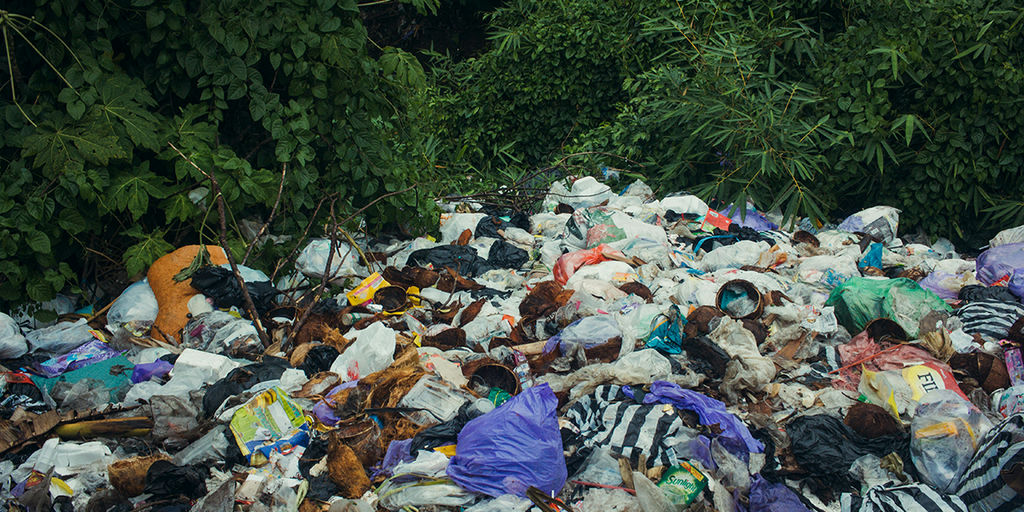From Waste to Wealth: Paid Waste Returns Could Be a Double Win for Developing Countries

(Image Source: Finlan Aldan/Unsplash)
Solid waste management is a significant concern worldwide as solid wastes generate externalities that impact human health, environmental quality, and economic stability. Poor waste management contributes to the pollution of land, air, and water, with ocean plastic pollution alone costing approximately $13 billion annually and methane emissions from organic waste contributing about 5% of global greenhouse gasses. According to the IMF in one of its working paper series www.imf.org the challenge is higher in developing economies where waste collection rates average only 43%, compared to 85% in upper-middle-income countries.
Developing countries often struggle with inadequate waste collection systems, particularly in low-income settlements where high-density living makes waste management even more difficult. Without regular collection services, waste ends up in open spaces, contributing to environmental contamination and public health issues, such as the spread of diseases like malaria, typhoid, and cholera.
Yet all hope is not lost; one innovative approach is the concept of paid waste returns, where individuals receive financial incentives for returning recyclable materials. The paid waste return system offers a promising solution to these challenges. By providing financial incentives for returning recyclable materials, such as glass bottles or cans, this system can improve recycling rates and reduce litter.
This system is not new, and it has been effective in some developed countries. For instance, in Ontario, Canada, a deposit return system for beverage containers helps reduce the volume of glass and other materials in landfills, repurposing them for higher-end uses like new bottles or road-building materials; see Ontario's Deposit Return Program for more information.
In the United States, curbside collection systems coupled with deposit returns have proven effective in reducing roadside litter by up to 64%. Similarly, buy-back centers, which purchase recyclable materials from the public, offer both economic incentives and contribute to resource recovery. While not perfect, these centers create jobs within the local community and support sustainable manufacturing practices by reducing the waste sent to landfills.
Making Money From Waste
Apart from the preservation of the environment, turning waste into wealth presents a significant economic opportunity. At the household level, individuals can generate income by participating in recycling programs, bringing in extra revenue that can support their families. Incentivizing recycling can reduce the burden on city budgets for waste management and landfill maintenance. In addition, the sale of collected recyclables can generate revenue, which can be reinvested into improving waste management infrastructure or supporting community programs. Buy-back centers, for example, not only help in resource recovery but also create local jobs and stimulate economic activity within the community; see this article for more information on how this can play out.
The revenue generated from recycled materials can be substantial, especially when scaling up operations to include a wide range of recyclable products. This dual benefit of cost reduction and income generation highlights the potential of paid waste return systems to drive economic growth while addressing pressing environmental issues.
While the paid waste return system has clear benefits, it is not without its pitfalls. In less developed countries, where informal waste sectors play a significant role, the implementation of such systems can come with some challenges.
There is a risk that paid waste returns could unintentionally widen the gap between those who can participate in the system and those who cannot. In low-income areas where informal waste pickers already play a crucial role, the introduction of formalized systems must ensure that these workers are not pushed out but rather integrated into the formal waste management economy; see this article about things policymakers can do to empower informal waste workers.
Developing countries may face challenges in maintaining and operating the necessary infrastructure. A report by the United Nations revealed that frequent breakdowns of collection vehicles, slow repair times, and inadequate funding can undermine the effectiveness of paid waste return systems. Lessons from developed economies highlight the need for robust support mechanisms and infrastructure to sustain these programs.
Buy-back centers and deposit return systems must also be carefully designed to avoid inconveniencing local residents and businesses. For instance, centers should be strategically located near industries and commercial hubs to ensure a steady supply of recyclable materials and minimize disruption.
Paid waste return systems offer a valuable tool in the quest to address climate issues and poverty in less developed countries. By incentivizing recycling and reducing waste, these systems can drive environmental and economic benefits. A balanced approach, incorporating lessons from both developed and developing economies, will be essential in turning waste into wealth while addressing the pressing challenges of climate change and poverty.
For additional information and actions, see “Recycle plastic properly” and Recycle in all the right places.

